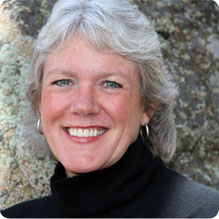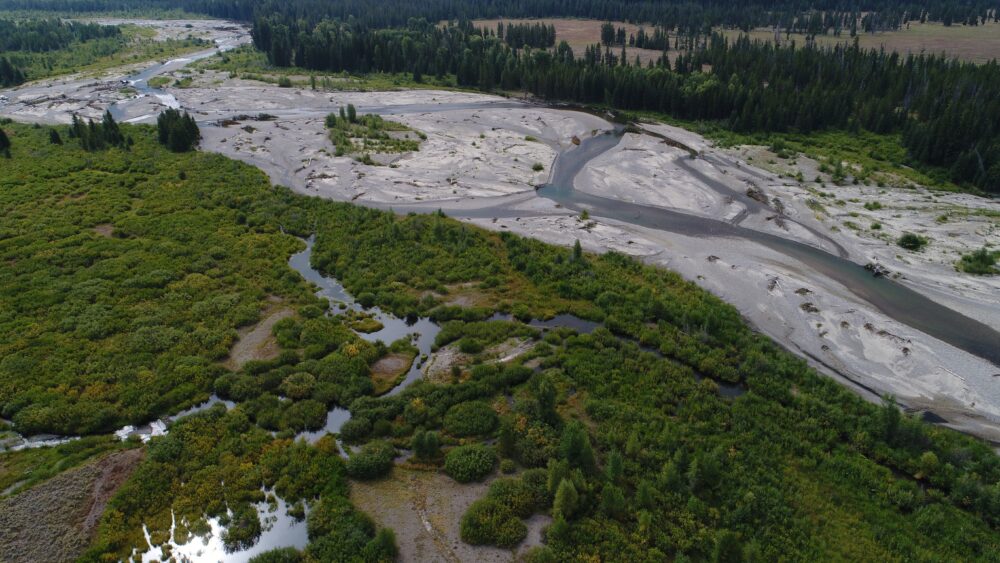We have much more to do and your continued support is needed now more than ever.
Weekly News Roundup – February 17, 2012
Want to know what National Wildlife Federation was up to this week? Here is a recap of the week’s NWF news:
RESTORE Act needs support from a distance now
February 17 – The longer Congress twiddles its collective thumbs about passing the RESTORE Act, the greater the potential loss to all Americans.
BP’s oil well poured some 210 million gallons of crude oil into the Gulf of Mexico, killing wildlife, local businesses and a couple of tourism seasons. Another 770,000 gallons of chemical dispersants were added to the poisonous soup.
It will take billions of dollars to repair the damage.
House Giveaway to Big Oil Jeopardizes America’s Wildlife

“This bill would recklessly jeopardize some of America’s most iconic wildlife, from the Arctic’s polar bears to the Atlantic’s humpback whales, while forcing the approval of the Keystone XL tar sands pipeline even before a route is determined,” said Larry Schweiger, president and CEO of the National Wildlife Federation.
Senator Inhofe Seeks to Roll Back Clean Air Victory
February 16 – Senator James Inhofe has threatened to introduce a Congressional Review Act resolution (CRA) to strike down the EPA’s mercury and air toxics standards for power plants as soon as today. The CRA is a wrecking ball that could permanently prevent national standards for mercury and air toxics. The new mercury rule was decades in the making and is expected save thousands of lives and improve wildlife habitat while creating jobs. POLITICO has reported that Sen. Inhofe called the new standard “a killer.”
“Senator Inhofe has it backward on what the “killer” is in this situation. EPA and public health and environment groups all agree that the overdue mercury and air toxics standard will save as many as 11,000 lives, while reducing dangerous mercury exposure to children and pregnant mothers who consume fish laced with the toxic substance,” said Joe Mendelson, NWF climate and energy policy director.
Healthy Kids From Day One Act Would Address Inactivity, Fight Childhood Obesity

Senator Mark Udall (CO), lead sponsor of the Healthy Kids Outdoors Act focused on getting kids outside, introduced the Healthy Kids from Day One Act today to establish a pilot program to address obesity and inactivity among young children.
The three-year program will initially operate in five states, supporting “child care collaboratives designed to reduce the prevalence of overweight/obesity among children from birth to age 5” by focusing on healthy eating, physical activity and reducing screen time.
National Sportsmen’s Groups to Congress: ‘Restore Mississippi River Delta and Gulf Coast Now’
February 16 – A group of more than 650 hunting, fishing and outdoor sporting businesses and organizations are sending two sign-on letters to Congress today with a clear message — restore the Mississippi River Delta and the Gulf Coast, a vast complex of wildlife habitat that has faced high rates of landloss and suffered further degradation after the unprecedented 2010 oil spill. The letter comes at a critical time for Gulf restoration, as news reports indicate that BP is attempting this month to pay $20-$25 billion to settle with the Justice Department on all charges related to the spill.
Coalition to Congress: ‘Do Not Waver in Support for Great Lakes Programs’

“President Obama’s budget keeps Great Lakes restoration on track,” said Jeff Skelding, campaign director for the Healing Our Waters-Great Lakes Coalition. “Now we’re looking for the U.S. Congress to not waver in its commitment to restore a resource that more than 30 million people depend on for their drinking water, jobs and way of life.”
Study: Southeast biomass has carbon spike before long-term climate benefits
February 14 – A new study of southeastern forests in the U.S. finds that in the long run, burning wood instead of fossil fuels to make electricity can reduce heat-trapping carbon dioxide in the atmosphere, but not soon enough to prevent worsening the conditions leading to global climate change.
The study also shows that as the industry expands in the Southeast, biomass energy will increasingly come from cutting standing trees instead of using wood residues from sawmills and other sources, emphasizing the need to balance forest ecosystem health and related values, such as drinking water and wildlife habitat, with renewable energy objectives.
Public lands advocate, manager takes helm of NWF’s Rocky Mountain Regional Center
 February 13 – Ann Morgan, who has extensive experience in public lands policy and management in government and nonprofits, is the new executive director of the National Wildlife Federation’s Rocky Mountain Regional Center in Boulder.
February 13 – Ann Morgan, who has extensive experience in public lands policy and management in government and nonprofits, is the new executive director of the National Wildlife Federation’s Rocky Mountain Regional Center in Boulder.
Morgan started Monday in her position, which will include overseeing NWF’s efforts to conserve the public lands and wildlife that are integral to the great Western landscapes. She joins NWF after six years as vice president of the public lands department at The Wilderness Society. Before that, Morgan served as state director of the Bureau of Land Management in Colorado (1997-2002) and Nevada (1994-1997) and was an adjunct professor and research fellow at the University of Colorado’s Natural Resources Law Center.
And here are highlights from NWF in the News:
- Radio: A nationwide radio tour with Ryan Stockwell, Manager Agricultural Programs featuring the benefits of cover crops was completed this week. Ryan did a total of 9 interviews on the top agricultural radio networks in the nation. His interviews reached hundreds of stations (over 600) while exploring the benefits of cover crops to the land, water, wildlife and farmer’s bottom line. Ryan was also interviewed by the USDA Radio Network and was heard on farm news programs nationwide via this trusted source.
- The Denver Post: EPA wants further review of water-diversion project to protect Colorado River
- E&E News: Could the Southeast create a 50-year debt of greenhouse gases by burning wood?
- Insurance Journal: 41 Senators Urge Action on Flood Insurance Reform
For more, visit www.nwf.org/News





















